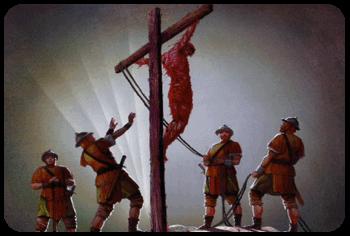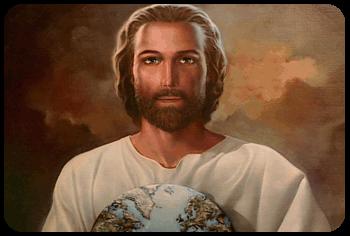|
**List: Esperanto Ministry
Bible ( Biblio )
Esperanto...
"Esperanto, with an estimated three to five million
enthusiasts
throughout the world, is the most successful of the artificial, or
constructed, languages. A linguistic mélange of Romance and
Germanic vocabulary, it was devised by
Dr. Ludwig Zamenhof,
a Russian brought up in a region where
four language groups
were in conflict. Developed as a ‘neutral tongue’, it first
appeared
in print in 1887. Since then Esperanto societies have sprung up in
some 85 countries, where its supporters
conspicuously identify
themselves with a green star in the lapel. An estimated 10,000
books in or about Esperanto have been published and the
language is vigorously propagated by courses, international
conferences, and over 100 periodicals."--1000 Tongues, 1972
[Info only]
"Scriptures have also appeared in Volapük and Selections in
Interlingua (see below), the other ‘constructed
languages’."--1000 Tongues, 1972 [Info only]
|
ESPERANTO--1000 Tongues, 1939 [Info only: "1927" John 3b-4:7a
unknown.]
"1893 Ruth W. Tümmel, Nürnberg
Translated by E. Neumark. The Book of John may have appeared
in
the same year, but no copy has been located."--1000 Tongues, 1972
[Info only]
|
"1906 Matthew Hinrichs, Leipzig
Translated on the basis of the Luther
text by W. B. Mielck and Fr.
Stephan. In 1910 an anonymous translation of the Gospels was
published by Hachette, Paris."--1000 Tongues, 1972 [Info
only: Fr. Stephan?]
|
"1910 Song of Solomon
Zephaniah Edinburgh
Translated by J. G. Fred."--1000 Tongues, 1972 [Info
only]
|
"1910 John Scripture Gift Mission,
London
Translated by W. J. Gristead, D. O. S. Lowell, and R. F.
Anderson."--1000 Tongues, 1972 [Info only]
|
"1911-1914 Pentateuch Hachette, Paris
Published initially in the periodical La Revuo, these were the
first
translations by Dr. Zamenhof."--1000 Tongues, 1972 [Info
only]
|
"1912 New Testament BFBS, National BS of
Scotland,
Edinburgh
Translated by a committee appointed by the International Congress of
Esperanto and the British Esperanto Association. Headed by [Rev.] J.
C. Rust
and [Mr.] A. E. Wackrill."--1000 Tongues, 1972 [Info only]
|
ESPERANTO--1000 Tongues, 1972 [Info only: "1913" Mark 1:2 incorrect
(Isaja la profeto = Isaiah the prophet).]
"1926 Bible BFBS, NBSS,
Edinburgh
The Committee N.T., with an O.T. completed by L. Zamenhof.
An
edition of 1954 contained a number of changes by W. J. Downes. Other
anonymous translations of single Books and Selections are listed in
the
catalog of the British Esperanto Association Library, London." --
1000 Tongues, 1972 [Info only:
1926 Mark 1:2 incorrect (la profeto Jesaja = the prophet Isaiah) per
Discovery.]
|
"Another of the international languages is
Interlingua. Conceived around
1920 by Edgar de Wahl and, after 1924, developed by a commission
of linguists, Interlingua draws primarily from the Romance languages,
but includes vocabulary from German, English, and Russian as well.
The verse shown is actually in the forerunner of Interlingua, devised by
Giuseppi Peano, and known as Latino sine flexione."-
-1000 Tongues, 1972 [Info only]
|
INTERLINGUA--1000 Tongues, 1972 [Info only: "1914?" Matthew 5:3
unknown.]
"An artificial, international
language developed from Volapuk in the
late 1880’s by Professor Giuseppe Peano and others of the Academie
pro Interlingua. First publication, Selections in 1914(?)
at Venti-
miglia, Italy, by the Editione de Unione pro Interlingua."--1000
Tongues, 1939 [Info only: INTERLINGUA.]
|
INTERLINGUA--1000 Tongues, 1939 [Info only: n.d. Matthew 5:3
unknown.]
|

